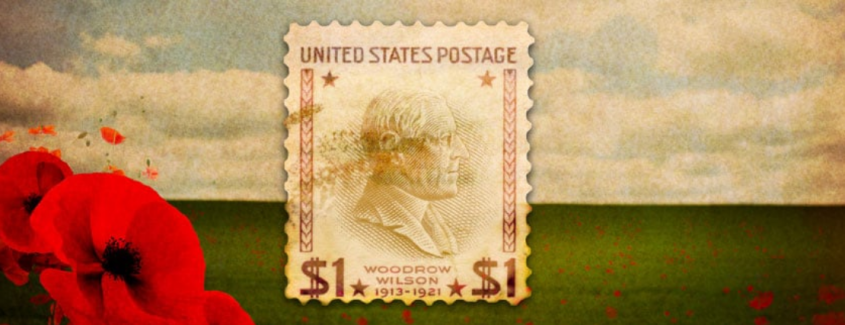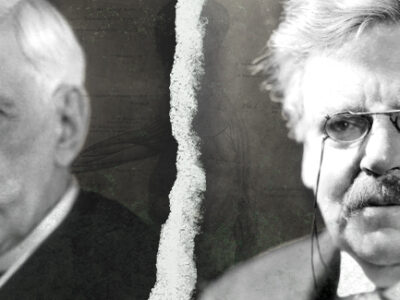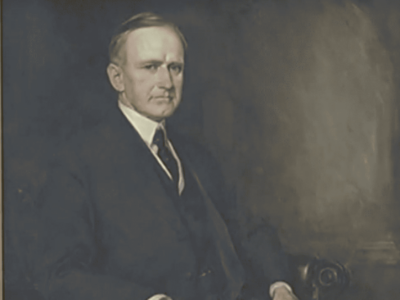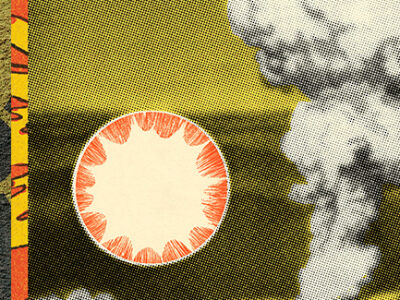
Editor’s note: This article first appeared at National Catholic Register. A shorter version appeared at the Pittsburgh Tribune-Review.
Not every Thanksgiving in America had the feeling of gratitude like Thanksgiving Day a hundred years ago. That Thanksgiving 1919 was truly a blessed occasion.
Our president was Woodrow Wilson, and his Thanksgiving Day proclamation was significant because America and the world had enjoyed their first full year of peace since 1914, when World War I broke out. Wilson’s nation had intervened. He idealistically called it “the war to make the world safe for democracy.” But it was hard to feel good about what had happened.
It was a terrible war, aptly described by socialist philosopher Sidney Hook (an atheist, ironically) as no less than “the second fall of man.”
Yes, religious metaphor seemed to best capture the calamity that America and the world had faced. Historian Michael Hull argued that World War I was, in a perverse way, arguably more horrible than World War II. The difference was the absolute waste of lives. “The horrors of World War I,” wrote Hull, “exceeded those of World War II in terms of the sheer futility of squandered lives.”
Never in history had so many lives been shredded.
Hull invoked the image of O Cristo das Trincheiras, “The Christ of the Trenches.” This was a life-size statue of Jesus Christ hung with arms outstretched on a tall wooden cross erected on the Western Front. Soiled, bullet-scarred, it was given by the French to the government of Portugal after the war to memorialize the thousands of Portuguese decimated at the Battle of Flanders. Today, Christ of the Trenches looks down upon the Tomb of the Portuguese Unknown Soldier at the Priory of Santa Maria da Vitoria (Saint Mary of Victory) in Batalha, Portugal. As Hull suggests, the crucified One is an appropriate symbol for the millions who gave their lives in this rotten war.
Pope Benedict XV declared it “the suicide of civilized Europe.” He was appalled that the world’s wealthiest nations had channeled their energies and best science and technology into a mass effort “to destroy one another with refinements of horror.” There seemed “no limit to the measure of ruin and of slaughter.”
It was a vicious war.
All of which brings us back to Thanksgiving Day 1919, and why Woodrow Wilson was so particularly thankful that year. “The season of the year has again arrived when the people of the United States are accustomed to unite in giving thanks to Almighty God for the blessings which He has conferred upon our country,” said Wilson. “We look forward with confidence to the dawn on an era where the sacrifices of the nations will find recompense in a world at peace.” As the American people gave thanks to God, they should also “reconsecrate themselves to those principles of right which triumphed through His merciful goodness.”
Wilson affirmed: “During the past year we have had much to make us grateful…. We should strive to aid by our example and by our cooperation in realizing the enduring welfare of all peoples and in bringing into being a world ruled by friendship and good will.”
Wilson concluded by declaring that November 27, 1919 “a day of thanksgiving and prayer by my fellow-countrymen, inviting them to cease on that day from their ordinary tasks and to unite in their homes and in their several places of worship in ascribing praise and thanksgiving to God the Author of all blessings.”
There is much that could be said about this. But beyond the history lesson, what should strike us about Wilson’s proclamation and other presidential Thanksgiving proclamations, from George Washington on, is how religious these statements were.
In 1789, America’s first president proclaimed a “day of public thanksgiving and prayer.” George Washington implored the heavens to “pardon our national and other transgressions” and urged the citizenry to practice “true religion and virtue.”
In 1863, President Lincoln urged his countrymen to set aside the last Thursday of November “as a day of Thanksgiving and Praise to our beneficent Father who dwelleth in the Heavens.”
Subsequent presidents continued this civic-religious tradition. It was, after all, just that: a public holiday proclaimed to give thanks explicitly to God.
President John F. Kennedy offered a civics lesson as well as a prayer in his first Thanksgiving Day proclamation: “More than three centuries ago, the Pilgrims, after a year of hardship and peril, humbly and reverently set aside a special day upon which to give thanks to God. They paused in their labors to give thanks for the blessings that had been bestowed upon them by Divine Providence.” Quoting the Bible, President Kennedy affirmed: “It is a good thing to give thanks unto the Lord.”
President Ronald Reagan said the same in his proclamation for Thanksgiving Day 1986: “Perhaps no custom reveals our character as a Nation so clearly as our celebration of Thanksgiving Day. Rooted deeply in our Judeo-Christian heritage, the practice of offering thanksgiving underscores our unshakeable belief in God as the foundation of our Nation and our firm reliance upon Him from Whom all blessings flow.” Like Kennedy, Reagan quoted the Psalms.
Reagan went on, invoking one of his favorite images: George Washington kneeling in the snow in prayer at Valley Forge. He said that that “moving image personifies and testifies to our Founders’ dependence upon Divine Providence during the darkest hours of our Revolutionary struggle.” It personified a people who knew it was not enough to depend on their own courage and goodness; they must also seek help from “their Father, their Preserver.”
I could go on and on with examples from our presidents at Thanksgiving, from Teddy Roosevelt to Franklin Delano Roosevelt, from Harry Truman to George W. Bush. These presidents were Democrat and Republican, liberal and conservative. It didn’t matter. America was much more religious, and Thanksgiving was genuinely about not merely being “thankful” but giving thanks explicitly to God. That has changed in more recent times.
Every year at Thanksgiving I trek into Barnes & Noble for an annual ritual of self-mortification. I go to the children’s section and glimpse the offerings for Thanksgiving. It never ceases to be a painful experience.
A friend of mine works in that section, stocking the latest catalogue of books the corporate folks funnel in. I recall my first Thanksgiving conversation with her a few years back.
“How are the Thanksgiving books?” I asked.
“You don’t want to know,” she groaned. She found only one book that mentioned giving thanks to God.
“Really?” I responded. “Who are they giving thanks to?”
“Well,” she said vaguely. “They’re just thankful.”
“’Thankful’ to whom?” I replied. She again emphasized: “They’re just thankful.”
I repeated the exercise last Thanksgiving. It was again agonizing. Among the books featured in the kids’ display: Five Silly Turkeys, How to Catch a Turkey, Where is Baby’s Turkey?
Of course, not all turkeys. One “Thanksgiving” book particularly caught my eye: Fangsgiving. Presumably a nod to the vampires involved in the pilgrims’ courageous endeavor.
Well, that isn’t Thanksgiving.
To be sure, I certainly have no objection to people being thankful. During Thanksgiving at our family table, we take turns naming something were thankful for. But that must come after giving thanks to God as the starting point. For Thanksgiving in America, that was the intent. That’s the lesson here (and should be the lesson especially in books for children).
It’s great to give thanks. But it’s also good to keep in mind that Thanksgiving Day in America was, first and foremost, about being thankful to God. That seems worth remembering, at least once a year.
A hundred years ago, in 1919, President Woodrow Wilson and his nation could have easily complained. Perhaps reflecting a more modern spirit, they could have bitterly shaken their fist at God, asking where He was in those bloody fields of France and No Man’s Land where all those boys were chewed up by the World War I meat-grinder. They could have bemoaned the squandered lives. They didn’t. They paused and thanked God for what they had.
That’s a good thing for Americans to pause to do once a year at Thanksgiving.




